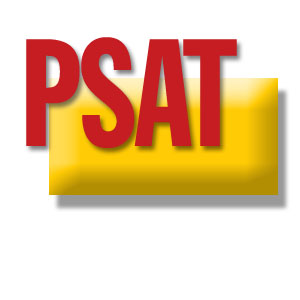
October 17th. Schools are open but NYC has decided to pay for all our 10th and 11th graders to take the PSAT. The College Board will create, and grade the exam. NYC school employees with distribute the exams, proctor the exams, collate the exams and re-collect the exams. NYC guidance conselors will be overwhelmed with the fear and grief of students upon the return of the scores. Administrators will be overwhelmed with questions as to where, when and why their son or daughter is taking the exam.
All this for a test.
Our school does not have the room for this to effectively occur while all the freshmen and all the seniors are in the building. Hence, teachers are attempting to create "out of school experiences" for all the freshmen and seniors. Our school's furniture was created for the other 179 days when cooperative group projects, and student exhibitons are our forms of assesment. We have no budget to support these "out of school expereinces", no menu of suggested locations paid for by the lucrative private company known as the College Board. NYC pays the College Board ($1.2 million dollars); the College Board gives schools the exams, and teachers are left to figure the rest out.
Losing the building for a standarized test. The first filter between high school and college. Paid for by Mike and the DOE.
Tuesday, October 09, 2007
What learning styles does the PSAT test for?
Posted by
W Brown
at
7:57 PM
![]()
Labels: philosophy, Reflection, school procedure, testing
Subscribe to:
Post Comments (Atom)




3 comments:
When the question of standardized testing comes up, I always find myself at the crossroads.
I certainly don't believe that one's admission to college, graduation, etc. should be based around one single event, just as an artist's/athlete's career shouldn't be based on one performance. However, the predominant means of determining scholarships, admissions, etc. to schools remains as the SAT score. My SAT's were what helped me pay for my college tuition, which in turn helped me to become a teacher. To that end, as teachers, I believe strongly that we're doing our kids a disservice when we don't prepare them for these events.
One of the ways you prepare for an event is practice. For many of the kids in our suburban schools, the 85 to 100 bucks to take the PSAT is not a big deal, almost an accepted fact of life. For many of our kids, that 85 to 100 dollar price tag is something that's just not in the budget; thereby limiting their exposure to the SAT, in turn their chance of performing well, and chances of obtaining scholarships. In short, keeping the disenfranchised right where they are.
Perhaps the city should've come up with some sort of plan, where 10th and 11th graders went to sites designated as testing centers. Unfortunately, we're left to deal with the logisitical mess this will create. But, if it helps one kid just that much to make the difference between college and no college...
Mr. Tesler has a compelling argument but I asked myself if the SAT helped me become a teacher as well. The answer was no. Two other things did however.
First, the fact that school taught me to set goals, perserve through obstacles, and work hard even when there is no immediate gratification for doing so. The second was the hard work that my mentors but into shaping me as a teacher (Wally, Frank, Lori, Nancy, how can I ever thank you enough) not the ATSW AND CST exams. Even at 17 I knew that the SAT's were an obstacle to overcome NOT a goal to be achieved.
I went to prep classes, took dozens of practice exams, been preconditioned to testing as a Catholic school student for 12 years and guess what? In the end it didnt really matter. If ithat was the stuff that mattered then why did so many of our students, who are not test-takers, get into so many great colleges? It is the attitudes and skills that we instilled NOT some Pavlovian response to scantrons and number 2 pencils.
Yes, standarized testing is a reality but if I teach my kids to THINK then I know i can trust them to sort out darkening an A,B,C, or D.
Woolsey
Mr. Woolsey makes some very interesting and compelling points in his statement as well. However, I'd like to clarify one of the points I made in my original statement.
Just as Woolsey states in his post, the ATSW, CST, and other alphabet soup exams weren't the things that helped mold me into a teacher. It was the help of very talented people in the profession (Wally also helped me immeasurably, which is why I hold him in the highest regard) as well as the lessons learned from sports, and other disciplines.
For me, my success on the SAT meant money for school, plain and simple. I had average grades in high school, but scored very well on the SAT. Because of that score, I was able to get into special programs at CW Post; programs which basically took care of my tuition.
Many of the students in my school have aspirations of attending college. The reality for them, however, is that the pricetag may be out of their parent's range. It's only for that reason that I think we should take the time to get the kids ready for these events. I believe that if you have to perform a specific skill, or task, you need to have some "game condition" experience with it.
Post a Comment